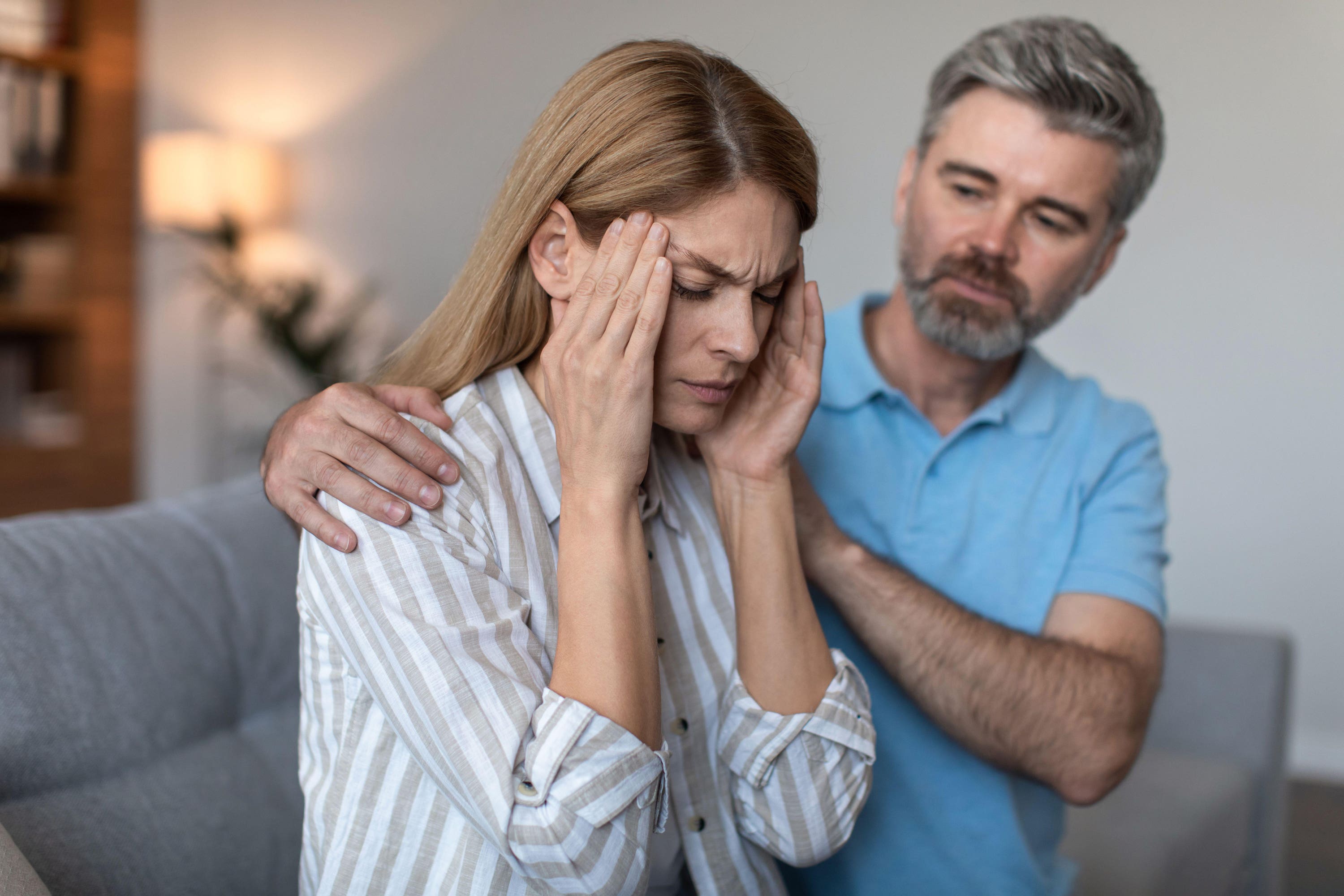Two thirds of women think partner fails to understand menopause
Exclusive: Two thirds of women think the menopause has had an impact on their marriage or relationship

Two-thirds of women think their current or former partner fails to understand the menopause, a new study has found.
Polling carried out exclusively for The Independent also discovered almost half of women fear menopause is either currently harming their relationship or will do so in the future.
Stowe Family Law, which surveyed 534 women aged 40 and older, found around two-thirds said the menopause had an impact on their marriage or relationship, with this leading to a loss of physical intimacy among almost half of women.
Meanwhile, almost seven in 10 of those women polled who said the menopause had played a key role in their relationship breaking down said they had been the person to initiate divorce proceedings.
The majority of the 3.4 million women between 50 and 64 in the UK will be experiencing symptoms of menopause – with these ranging from heart palpitations to hot flushes, vaginal pain, anxiety and depression.
Sue Palmer-Con, a former academic who now works as a divorce coach, told The Independent the menopause was a key driver in her decision to ask her husband of 28 years for a divorce.
The 70-year-old, who had two children with her husband, explained she began getting symptoms of the perimenopause when she was 43 - meaning she became “more irritable” and her libido declined.
“My body started changing,” she said. “I was experiencing hot flushes, which sometimes led to anxiety. I suffered from frequent headaches.”
I told my husband I felt the marriage had run its course and I wanted a divorce. I think he was shocked. I was no longer the pussy cat he had married. I had grown into a roaring lioness.
As her hormonal balance shifted, her brain’s wiring also changed, she noted, meaning she started “questioning everything” about her marriage, as well as her “position in the family”.
She added: “A new reality started brewing and I suddenly discovered ambition and a desire for a startling career. In 2001, I told my husband I felt the marriage had run its course and I wanted a divorce. I think he was shocked. I was no longer the pussy cat he had married. I had grown into a roaring lioness.”
Ms Palmer-Con, who has a PhD in psychology, said before menopause her efforts were centred on looking after the kids and she was less inclined to get into conflict with her partner.
“I’d been a stay-at-home mum for seven years,” she added. “I had always been happy to walk in his shadow. A divorce was the best thing I have ever done. I created a whole new me.”
Ms Palmer-Con, now happily remarried, argued brain rewiring triggered by the menopause can make women become more assertive - adding that research supports this view.
The new research found almost eight in 10 of the women did not feel their husband or partner has the knowledge base or resources to sufficiently support them through the menopause. Half of these women feared this lack of support while going through the menopause could lead to their relationship ending.
Sarah Barr-Young, a managing partner at Stowe Family Law, told The Independent the menopause and the time leading up to it known as perimenopause “can be a challenging time for couples” as she noted it isn’t “uncommon for a marriage to break down during a woman's menopausal years.”
She added: “Divorce rates peak for couples aged 45 to 49 years old in the UK. This is not surprising, considering the impact of the physical, mental and emotional symptoms of menopause can leave women feeling overwhelmed, anxious, depressed, and lacking self-confidence.
“It is inevitable, this may impact relationships, causing new issues or highlighting existing struggles.”
Ms Barr-Young said while taboos which surround the menopause are lessening, more must be done, as she lent her backing to recent calls for a NHS menopause check-up for women when they turn 45.
Last week, MPs in the Menopause All-Party Parliamentary Group made a plea for this to be rolled out as they published their final report following a year-long inquiry into the menopause.
“In my experience, life changes such as menopause rarely directly cause the breakdown of a relationship, and instead often expose issues that already exist and magnify them,” Ms Barr-Young added.
“If the relationship is already struggling, it may not have the resilience to survive the changes and challenges times such as the menopause bring. Early diagnosis and the correct medication and support will help women and their partners navigate the challenges of menopause from a better informed and equipped place.”
Subscribe to Independent Premium to bookmark this article
Want to bookmark your favourite articles and stories to read or reference later? Start your Independent Premium subscription today.

Join our commenting forum
Join thought-provoking conversations, follow other Independent readers and see their replies